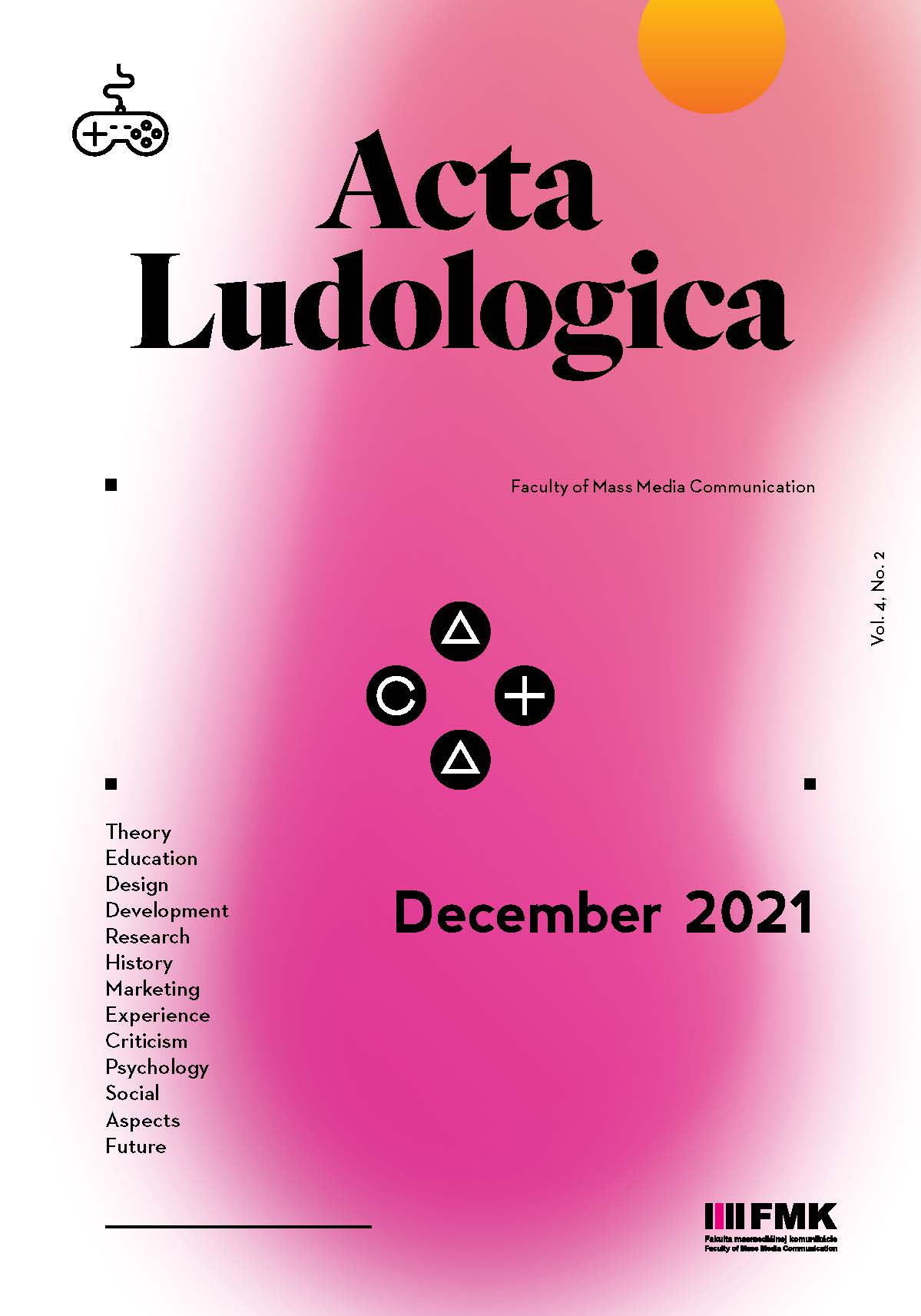I Passed Away, but I Can Live Again: The Narrative Contextualization of Death in Dead Cells and Sekiro: Shadows Die Twice
I Passed Away, but I Can Live Again: The Narrative Contextualization of Death in Dead Cells and Sekiro: Shadows Die Twice
Author(s): Matteo GenovesiSubject(s): Social Sciences, Media studies, Communication studies, Sociology, Theory of Communication, Environmental interactions
Published by: Univerzita sv. Cyrila a Metoda v Trnave, Fakulta masmediálnej komunikácie
Keywords: death; death in Dead Cells; digital games; emerging elements; environmental storytelling; failure; hidden fragments; Sekiro: Shadows Die Twice;
Summary/Abstract: In digital games, the player’s activity often includes a necessary repetition to achieve an appropriate knowledge of the game’s mechanics and dynamics. This process can involve various failures of the player. Even if a digital game can be theoretically completed without failures, the player must practically learn from every mistake, which often corresponds to the death of the main character. Every avatar constantly lives in a vulnerable existence that includes its death during the gameplay. If a character can be vulnerable, the player can be inadequate, but digital games always provide a chance of redemption, and a failure becomes a necessary step on the path to further growth. On the basis of various Italian and other international scientific contributions on the themes of failure and death in digital games, the following essay will analyse two different case studies: Dead Cells and Sekiro: Shadows Die Twice. In these titles, death is not only a necessary part of the gameplay, but it also becomes a focal concept of the storytelling thanks to two different principles which will underline specific modes to emphasize the narrative importance of death and failure in the digital game medium.
Journal: Acta Ludologica
- Issue Year: 4/2021
- Issue No: 2
- Page Range: 32-41
- Page Count: 10
- Language: English

